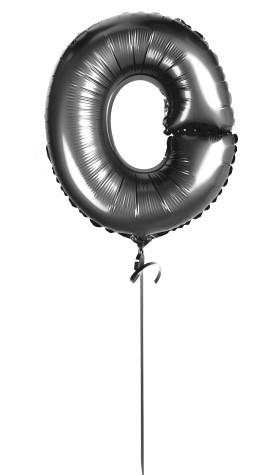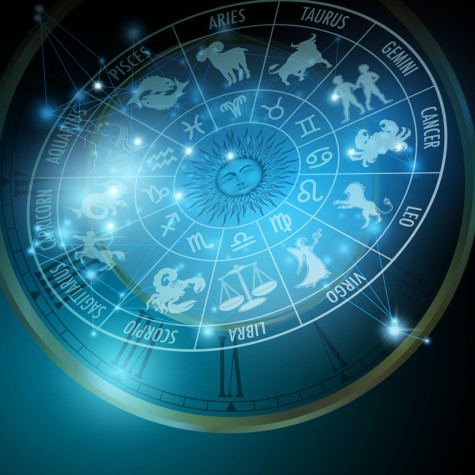
I know a guy who doesn’t have a birthday. Andy* was born in the Moroccan desert. His parents were nomads. There were no smartphones in the 1960s and a nomadic tribe didn’t have much use for the Gregorian calendar. And when it came to recalling the exact day and month of Andy’s birth, there were higher priorities.
Twenty years later, planning to move to Switzerland, he needed a national ID. Thanks to some artifact of Moroccan bureaucracy, he found himself with a state-issued birth certificate that listed only a date – 1969, his best guess at the year of his birth.
When he arrived in Switzerland, he needed a driver’s license. Because of the mismatch between required fields and available data, the compromise was an ID with the birthdate 0/0/1969.
What would it be like to not have a birthday? These digits impress themselves on our identity as much as our names do: it’s well established that we tend to prefer the letters in our own name and the numbers in our own birthday. So much so that researchers have looked at both of these as proxies for implicit self-esteem, the idea being that if I don’t like the letters in my own name, there are deeper reasons that I might want to explore with a therapist. Being partial to the digits in our own birth date has other strange effects. Marketing researchers found that they affect how much we’re willing to pay for things – if I see my birthday in the price, I’m happy to pony up more cash. It’s all a reflection of how much our identities are bound up with those integers.
But it’s not just our own feelings that determine how our birthdays affect us. The well-known “birthday effect” describes how the month of our birth influences our intellectual and physical development. August babies are at such a disadvantage that they tend to be underrepresented in college and professional sports – especially hockey, tennis, and softball. Because they start school up to a year younger than their classmates, they’ll be the smallest and least physically developed. A similar principle extends to intellectual achievement. When you first start school, you have as much as 20 percent less life experience than your peers. Over the next decade(s) of schooling, that disadvantage earns compound interest.
“The time of year in which you emerge from the womb,” Russell Foster, a neuroscientist at Oxford, told the Telegraph in 2011, correlate to some extent with
“how long you live, how tall you are, how well you do at school, your body mass index as an adult, your morning-versus-evening preference and how likely you are to develop a range of diseases.”
 I don’t know about all that. Some birthday claims are fairly overblown. One conference paper that got a lot of attention last year claimed that your birth season affects your mood: people born in summer were more prone to “excessive optimism”; people born in winter were less likely to be irritable; that sort of thing. The research was dressed up with talk of dopamine and neurotransmitters, but it was basically just 400 college kids taking a self-administered personality test, whose results the researchers then compared to their birth dates.
I don’t know about all that. Some birthday claims are fairly overblown. One conference paper that got a lot of attention last year claimed that your birth season affects your mood: people born in summer were more prone to “excessive optimism”; people born in winter were less likely to be irritable; that sort of thing. The research was dressed up with talk of dopamine and neurotransmitters, but it was basically just 400 college kids taking a self-administered personality test, whose results the researchers then compared to their birth dates.
There could be a few problems with using a personality test and a self-reported survey as the basis of scientific findings. Were the respondents always less than irritable, or were they just pretty happy that particular day? How much happier or less irritable were they – was it a subtlety that could barely be teased into a graph for a conference presentation, or did their moods have consequences in their lives? Those are just the obvious questions. Get a little fancy — for example, how do these findings play out in Australia, where the winter doesn’t correspond to the same months it occupies in the northern hemisphere — and, as the saying goes, “more research is needed”.
There is another, darker phenomenon that confusingly also goes by the term “birthday effect” – an increased tendency for people to die around or on their birthday. This one has a bit more science to back it up. There are conflicting theories about why this happens – some researchers think it’s about people willing themselves to hang on just to their birthday, others think it’s about the stress and pain around an emotionally resonant date.
Which brings me back to Andy. What could you learn from studying a population of people like him, people who have never pinned their identity onto a date the way we’re all forced to?
Eventually, of course, bureaucracy prevailed and he was made to choose a “proper” birthday. As you might when you have no attachment to any particular sign or season, he went with January 1. At least, according to the current received wisdom, he won’t have been irritable about it. And he probably won’t die on it.
* his name isn’t Andy – I anonymised him with the name my phone’s Anglocentric autocorrect substitutes every single time.
Photo credits:
O balloon: shutterstock
Astrological calendar: shutterstock
Great article. It’s absurd how a few arbitrary numbers and letters quickly wrap and embed us into the matrix. Since they are so powerful, perhaps we should all feel free to at some point choose whatever we like to identify with and by.
That’s really true; it’s weird that in this era of hyper-individualism, we’re still defined so heavily by what our parents thought we would be like before we had taken our first breath.
The good news is, you can buy a completely unique name if you have $31,000 lying around!
http://www.theatlantic.com/entertainment/archive/2015/08/the-paradox-of-baby-names/402550/